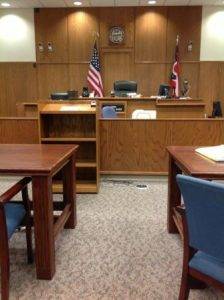Page Contents
When executors sell real estate, there are many things executors need to know. Real estate sales are not one size fits all. Every real estate transaction is unique to the property being sold.
Executors Selling a Probate Home

- The probate process is a legal process administered by the Superior Court in the county where the deceased person lived.
- Probate is expensive. Fees to file legal documents with the court must get paid.
- Probate lawyers get paid statutory fees based on the fair market value of the deceased person’s assets.
- Personal representatives get paid statutory fees to administer the estate.
- The probate process is time-consuming. It can take 9 months to a year or longer before the executor of an estate can get court approval to close the probate.
- If estate litigation gets involved, the probate can take years.
- A named executor in a Will, or someone else appointed by the probate court to manage the estate’s assets, sells the property. They are acting on behalf of the deceased person and not on behalf of their self.
- When a personal representative gets appointed by the probate court they become an officer of the court and assume fiduciary duties and liabilities in managing the estate’s assets.
Can Executors Sell a Probate Home Without All Beneficiaries Approving?
Probate is not one size fits all. Kathleen Daniels believes “Probate estates are as unique as fingerprints. No two are alike.”
- Before the executor can sell real property, they must first petition the court to administer the estate.
- When the probate court grants the petition, the judge signs an order for probate and issues Letters Testamentary.
- The Letters Testamentary are the legal documents from the probate court that gives the authority to administer the estate and sell real property.
Estate administration and selling a probate home varies depending on many factors.
Did the deceased person leave a Will?
 The wishes of the decedent are in the Will. A Will may grant the estate executor the power to sell the property.
The wishes of the decedent are in the Will. A Will may grant the estate executor the power to sell the property.- The executor must do as the Will directs.
- For example, if a Will states to sell the real property at XYX Street, then it must get sold at fair market value.
- The property gets divided as instructed in the Will.
Is the probate without a Will?
- If there is no will then intestacy rules apply.
- Similar to a Will, the personal representative must petition the court for probate. Once approved a letter of administration gets granted.
- With a Will or without a Will, the personal representative needs a certified copy of the Letters before they can sell the property.
- The Letters give authority to act on behalf of the estate.
Beneficiaries Approving Process
Once the personal representative accepts an offer to purchase the property, the probate and estate lawyer sends a Notice of Proposed Action to all parties entitled to receive notice.

- If the right to receive a Notice of Proposed Action gets waived in writing or if consent gets given in writing then a notice of proposed action is unnecessary.
- The notice states: If you do not object in writing or get a court order preventing the proposed action, they will treat you as if you consented to the proposed action. You may not object after the proposed action has taken place.
- If you object, the personal representative may take the proposed action only under court supervision.
An objection form gets included in the Notice of Proposed Action. If a beneficiary objects, their written objection gets delivered to the office location shown on the form.
The beneficiary objecting to the action to sell the home can also apply to the court or an order preventing the personal representative from selling a probate home without court supervision.
To sell the property without court supervision means the sale does not need court approval and will not be subject to the bid process.
An executor selling the property without all beneficiaries’ approval is unfeasible. It requires the beneficiaries’ and heirs’ approval.
Independent Administration of Estates Act (IAEA)
Under IAEA the personal representative is granted full authority or limited authority.
- Full authority means that prior court approval is not required. This is important when the representative needs to sell the property.
- Limited authority means there is no authority to sell real property without court supervision.
The Probate Process | Laws Designed to Protect Estate Assets

- They design laws to protect the deceased person’s assets. The probate process ensures that personal representatives follow the law and the process.
- We need to keep in mind when we get appointed as the personal representative of an estate we are acting on behalf of the deceased person.
- Personal representatives owe a duty to the estate and the heirs and beneficiaries. It expects them to act with prudence and with a high standard of care.
- Probate laws guard against an executor acting unilaterally and selling the property without all beneficiaries approving or waiving their right to receive notice.
- If there is a breach of fiduciary duty, the executor must answer to the probate court.
If disputes arise the court steps in to resolve disputes and decide based on the facts presented to the probate court.
Estate litigation is expensive and time-consuming. The best course of action is to resolve issues among heirs and beneficiaries. It will save time and attorney fees. The probate and estate will close timely allowing everyone to move on with their lives.
Hiring a Certified Probate Real Estate Specialist
When an executor needs to sell a probate home, which is likely the most valuable estate asset, it is important to uphold their fiduciary duties, which means a legal responsibility that involves a high standard of care to manage the property for deceased persons.
It only makes sense then that the executor hires an experienced Certified Probate Real Estate Specialist who understands the executor’s duties and the probate process.
Probate Real Estate Agent Duties
- A probate real estate agent has legal duties and obligations as an advocate of a probate estate. This means it is prudent to hire an agent that has specialized knowledge, training, and experience in the probate process.
